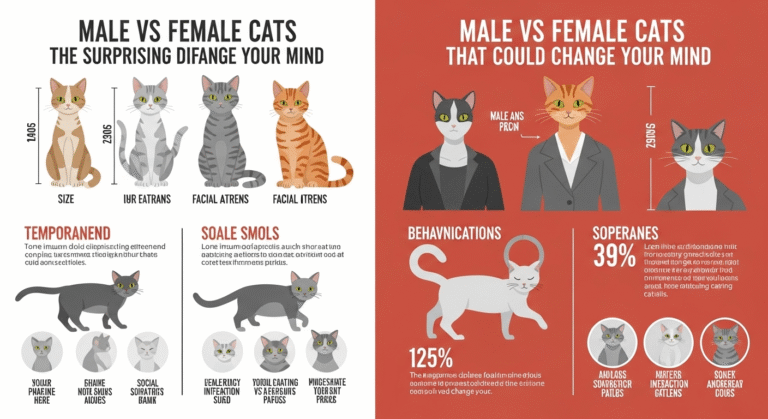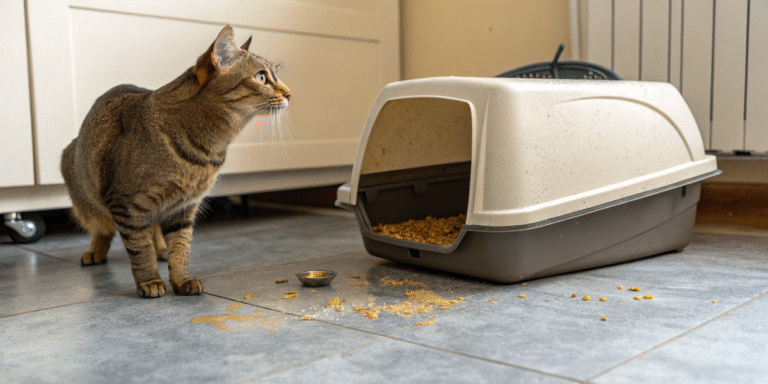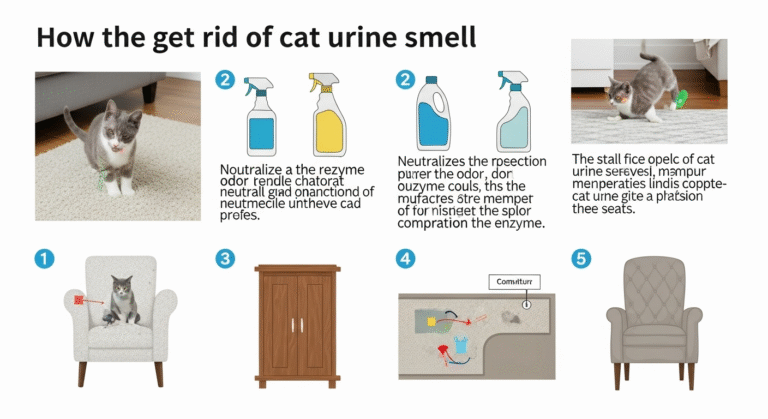7 Clear Signs Your Cat Might Not Love You as Much as You Think
Cats are mysterious, independent, and deeply complex creatures. While many cat lovers feel immense affection for their feline companions, the truth is… the feeling might not always be mutual. If you’ve ever wondered whether your cat really loves you, you’re not alone.
Here are 7 surprising signs that your cat might not be returning your love—and what those signs might actually mean.
1. Your Cat Avoids Eye Contact
In the feline world, eye contact is a sign of trust. When a cat gazes softly at you—especially if it includes a slow blink—it’s the equivalent of a kiss or hug. This behavior is called the slow blink of love, and studies show it’s a strong sign of affection.
Red Flag: If your cat avoids your gaze, looks away when you try to make eye contact, or even leaves the room when you approach, this could mean they feel distrust or discomfort around you.
How to Fix It:
Try offering your own slow blinks. If they return the gesture, it’s a sign your bond is building.
2. Tail Twitching
A cat’s tail is like a mood meter. While dogs wag their tails when happy, a twitching cat tail often signals the opposite.
| Tail Position | What It Means |
|---|---|
| Held High | Confidence or happiness |
| Tucked Between Legs | Fear or submission |
| Rapid Twitching | Irritation, agitation, or alertness |
Watch for this: If your cat’s tail is twitching rapidly while interacting with you, it could mean they’re annoyed or overstimulated.
3. Excessive Scratching
Scratching is a natural cat behavior. It serves many purposes, like
- Marking territory (their paws have scent glands)
- Shedding claw sheaths
- Stretching muscles

But too much scratching—especially in new places—can be a sign of stress or anxiety.
What Causes It?
- New pets or people in the house
- Moving or rearranging furniture
- Feeling threatened in their territory
Pro Tip: Don’t punish scratching. Instead, provide scratching posts, use deterrent sprays, and identify possible stressors.
4. Litter Box Avoidance
Cats are typically very clean and prefer to use their litter box. If they start having accidents outside the box, that’s not just inconvenient—it’s a warning.
Possible causes:

- Emotional stress (change in routine or environment)
- Physical discomfort or illness
🧠 Did You Know?
A study in the Journal of Feline Medicine and Surgery linked litter box issues directly to feline stress.
Solution:
Consult a vet to rule out medical causes. Also, ensure the litter box is clean, in a quiet location, and hasn’t been recently changed in brand or type.

5. Overgrooming
While grooming is normal, overgrooming to the point of fur loss or skin irritation is not.
Why it happens:
- Stress, anxiety, or boredom
- Allergies or skin infections
- Changes in home environment
What to Look For:
- Bald spots
- Red, irritated skin
- Obsessive licking
Action Steps:
- Check for fleas, infections, or allergies.
- Reduce stressors—like moving furniture or introducing a new pet.
- If the behavior continues, consult a vet.
6. Hiding Frequently
Does your cat disappear for long periods? Do they hide under the bed or in closets?
Cats often hide when they’re:
- Anxious or stressed
- Sick or in pain
- Trying to avoid interaction
In the wild, hiding pain helps cats avoid predators. This instinct survives in domesticated cats.
Signs It’s Serious:
- Hiding + not eating
- Hiding + change in litter habits
- Hiding + less grooming
If your cat’s hiding is paired with any of the above, call the vet.
7. Non-Responsive to Your Affection
Cats aren’t always in the mood for cuddles, but if your cat regularly ignores your affection—no purring, no rubbing, no reciprocation—it could be more than a bad day.
Why This Happens:
- They’re not feeling well
- They’re upset or anxious
- They’re holding a grudge
🧠 Fun Fact:
Research shows cats can remember negative experiences and may even associate those with certain people.
What You Can Do:
- Give your cat space
- Avoid forcing attention
- Build trust slowly through play and gentle interaction
Final Thoughts: What to Watch For
Here’s a quick recap of the 7 signs your cat may not love you (yet):
| Sign | Possible Meaning |
|---|---|
| Avoiding eye contact | Lack of trust or discomfort |
| Tail twitching | Irritation or overstimulation |
| Excessive scratching | Stress or anxiety |
| Litter box issues | Emotional or physical distress |
| Overgrooming | Anxiety or medical issue |
| Frequent hiding | Illness, pain, or fear |
| Non-responsive to affection | Stress, illness, or grudge |
If your cat is showing one or more of these signs, it doesn’t necessarily mean they hate you. Cats are sensitive animals with unique needs and moods. The best way to strengthen your relationship is to observe their behavior, respect their space, and seek veterinary advice when needed





